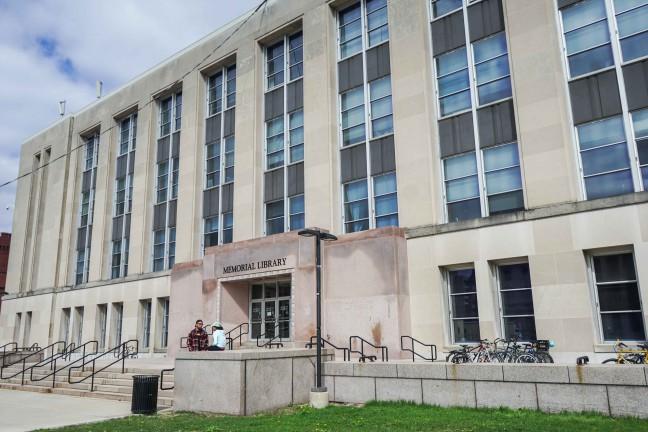The University of Wisconsin Libraries announced a call for proposals for contribution to an anthology of student-written essays focusing on student experiences and how their identities inform those experiences.
This call for proposals is a part of the UW Black, Indigenous and People of Color Student Voices Reader project in which students share their experiences at UW, in Madison or in Wisconsin, according to the project’s press release.
In an email to The Badger Herald, UW Libraries’ Diversity Resident Librarian for Open Educational Resources and the project’s editor Kristin Lansdown spoke on the project’s goals.
“The goal is to have this reader incorporated into UW-Madison courses because it localizes the experience of BIPOC students,” Lansdown said.
The project sought undergraduate students from UW who are Indigenous, American Indian or Alaska Native, Asian, Black or African American, Hispanic or Latinx, Middle Eastern and North African or Native Hawaiian or other Pacific Islander or who identify with more than one of those groups to contribute and submit proposals to this project. Students with multiple identities in gender, sexual orientation, disability, income status or other marginalized groups are also strongly encouraged to contribute, according to the project’s press release.
Students must plan to enroll in courses in Fall 2021 to be eligible to participate in the project.
According to the project’s section descriptions, students interested in the project can submit their proposals in three areas — context, voices or towards justice.
Student essays under “context” will include historical background or overview on topics related to systemic oppression based on research and theory, according to the press release.
Essays in the “voice” section will be personal stories that address experiences with prejudice or discrimination due to students’ identities.
The “toward justice” section focuses on student views on ways to achieve justice and liberation in society. Students can address topics related to abolition, anti-racism, environmental justice and so on. Students who participate in this section are likely to contribute to a multimodal presentation with some graphical or auditory elements involved.
Students selected for the “voices” section of the project will collaborate with the Writing Center to offer a workshop that helps them with writing story drafts. The OER Diversity Resident Librarian will support students in the “context” section in terms of research. Students in the “towards justice” section will receive support in producing content that includes visual or auditory elements.
Lansdown said all workshops are planned to be delivered remotely through the end of the year. Student authors are additionally expected to attend a peer-review session and an affinity group meeting when the project approaches conclusion.
Based on the press release, the scholarly communication unit of the UW Libraries and the Diversity Resident Librarian for OER will go through a peer-review process for the completed anthology that will be published using UW Pressbooks.
In regard to the proposal, the press release mentioned students should include the section they are interested in, the title of their contribution, keywords for the contribution and an abstract with a 250-word limit. Students may explain their campus involvement, major and research interests in the author bio.
The Division of Diversity, Equity and Educational Achievement will compensate students who participate $200 through an Innovation Grant.
The project hopes to aid in the UW Student Inclusion Coalition’s priority of addressing racism and discrimination that BIPOC students face on campus. In October 2020, SIC released the ‘Home is Where WI Aren’t’ video showing a list of things UW needed to do to provide all students with a more inclusive campus.
After the formation of SIC in 2019, this project was conceptualized by Lansdown.
“This is a new project that was conceptualized by me following the erasure of the BIPOC student community from the Homecoming video in 2019. I wanted to give students an opportunity to have their voices heard and valued,” Lansdown said. “Folks can’t say ‘this isn’t an issue here’ when there are narratives from our students stating that it is in fact an issue here.”


